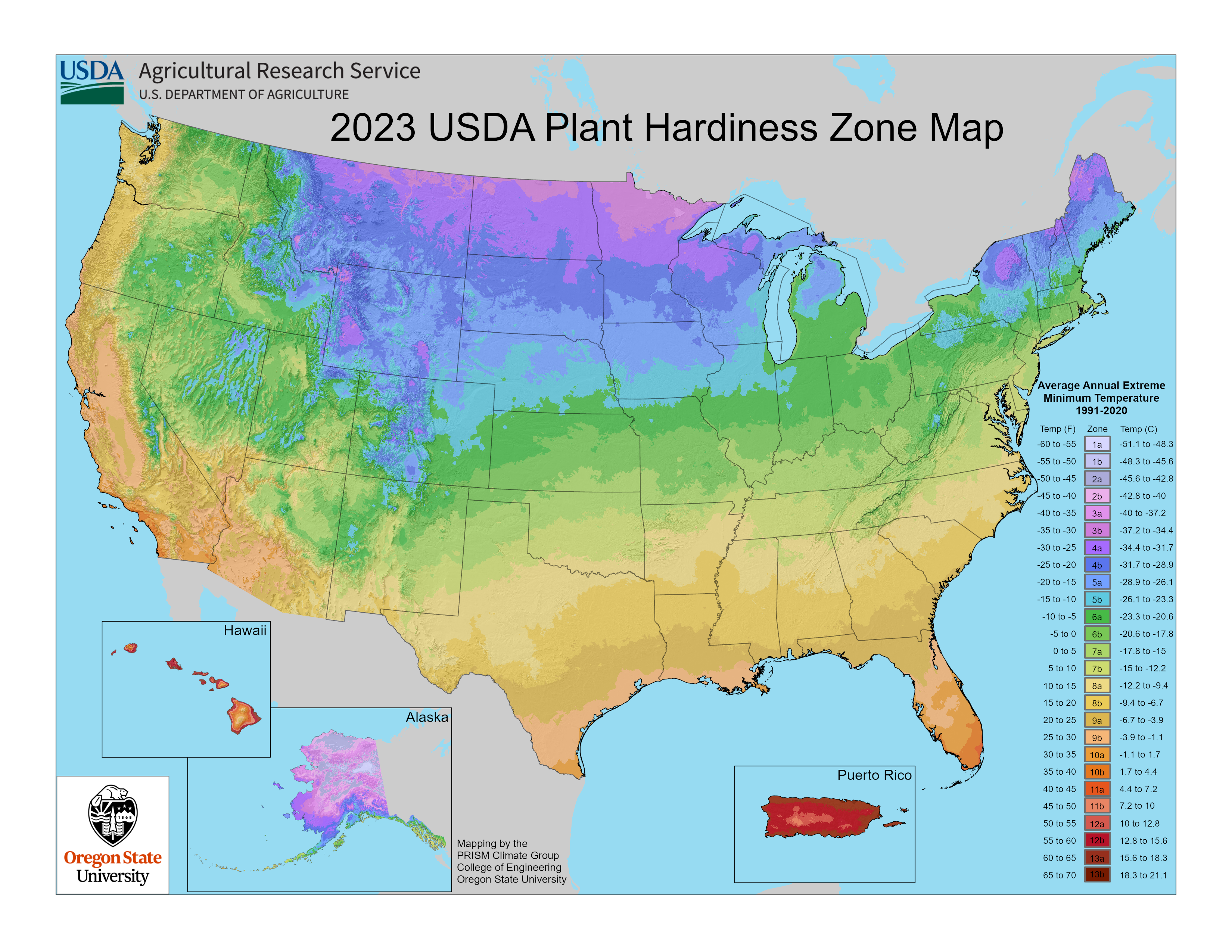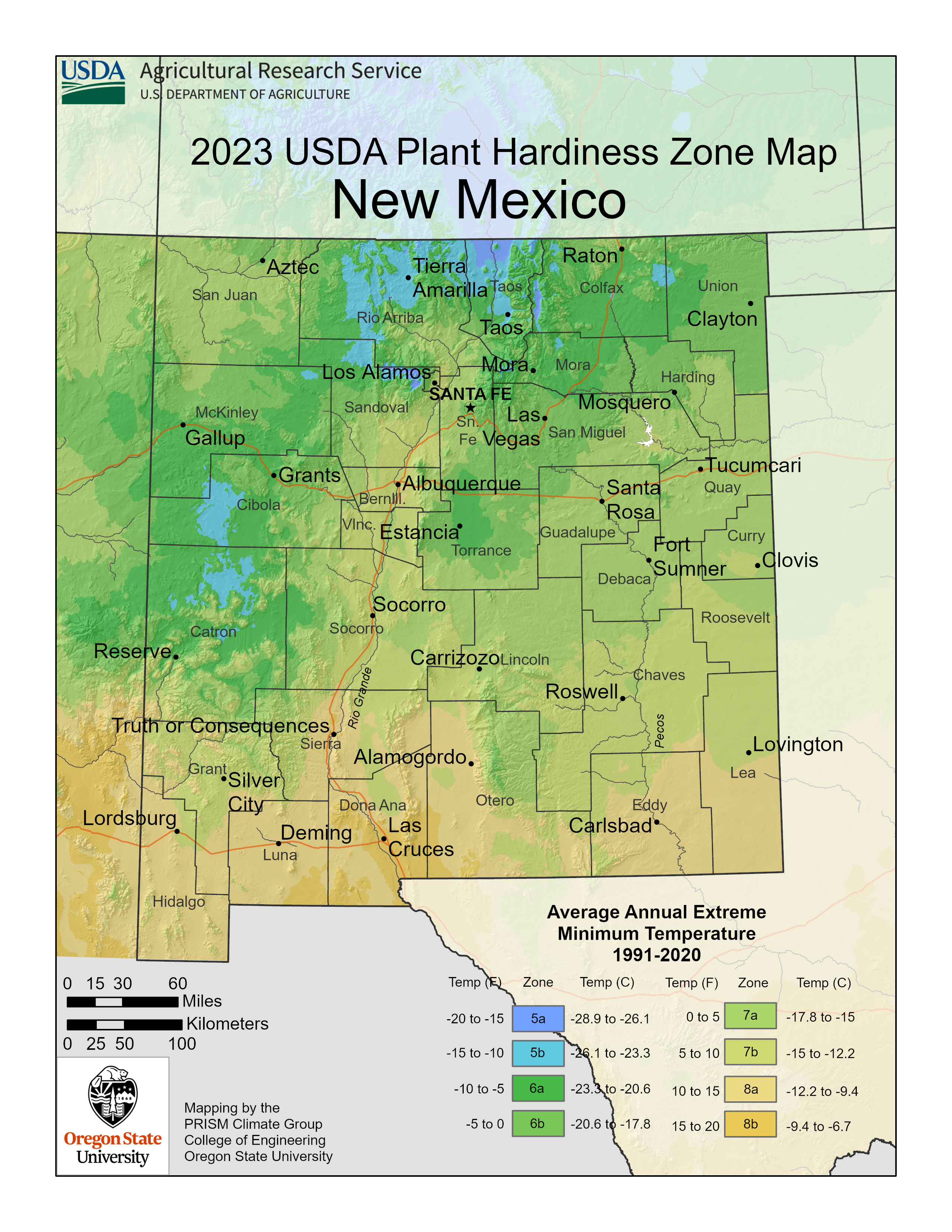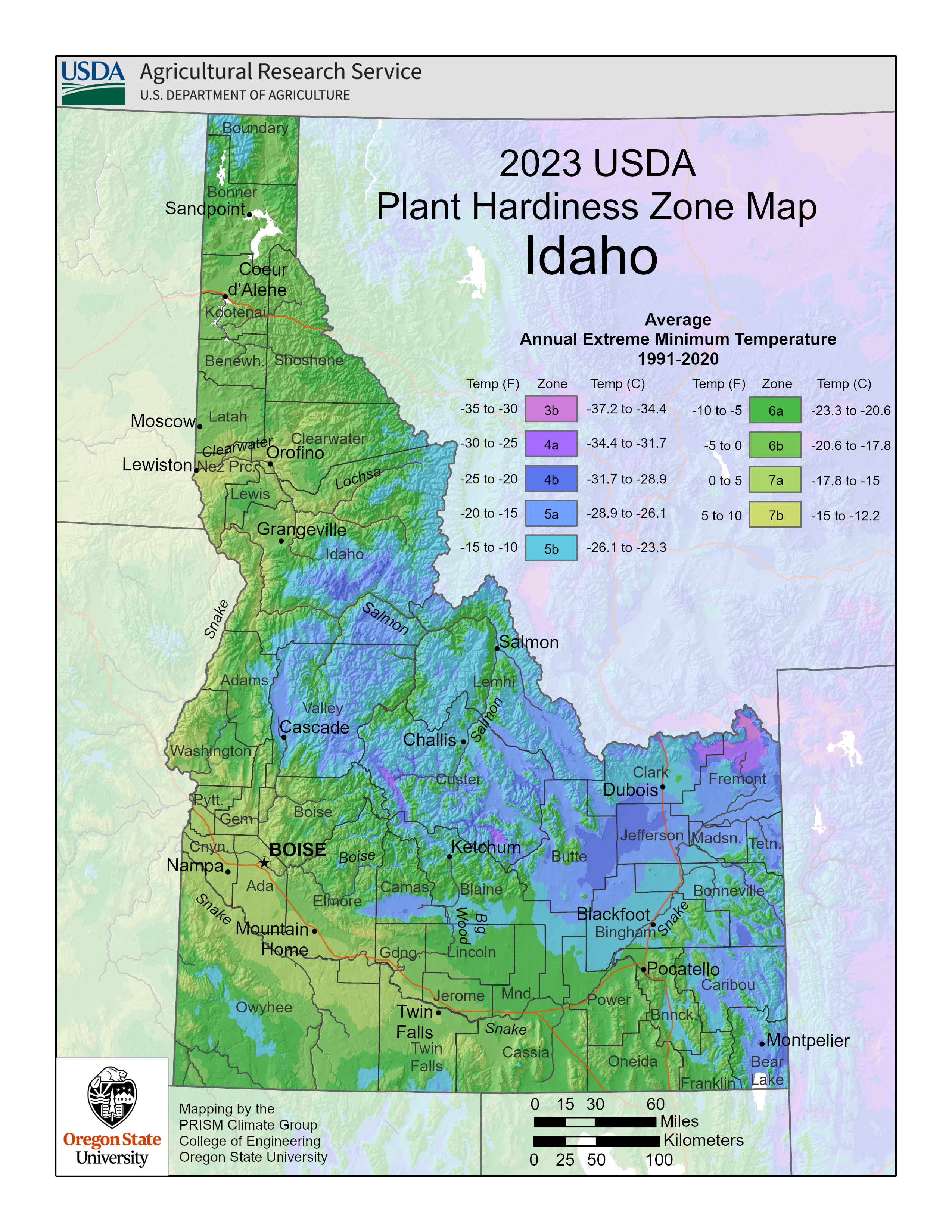Robins are beautiful birds, renowned for their bright red-orange bellies.
The females, as is often the case with birds, are more muted in color.
The fledglings are covered in spots, like a fawn, and have a ruffled feather-duster sort of look.
Behavior-wise, robins are quite brave and may forage around people at, say, the park.
Their nests are made primarily of sticks and grass, in a classic bowl-like shape.
Their eggs are super-unique and beloved for their sky-blue color.
Among birds, robins are some of the earliest nesters, some starting nest building as early as January. They breed in March/July, however!
Baby robins can begin to feed themselves at roughly 2-3 weeks of age. Until this time, they are entirely dependent on food brought by their parents. At first, this must be digested and regurgitated for them, then broken up. Eventually, they can eat whole insects – and then hunt them on their own as well.
Learn more below!
What Do Robins Eat?
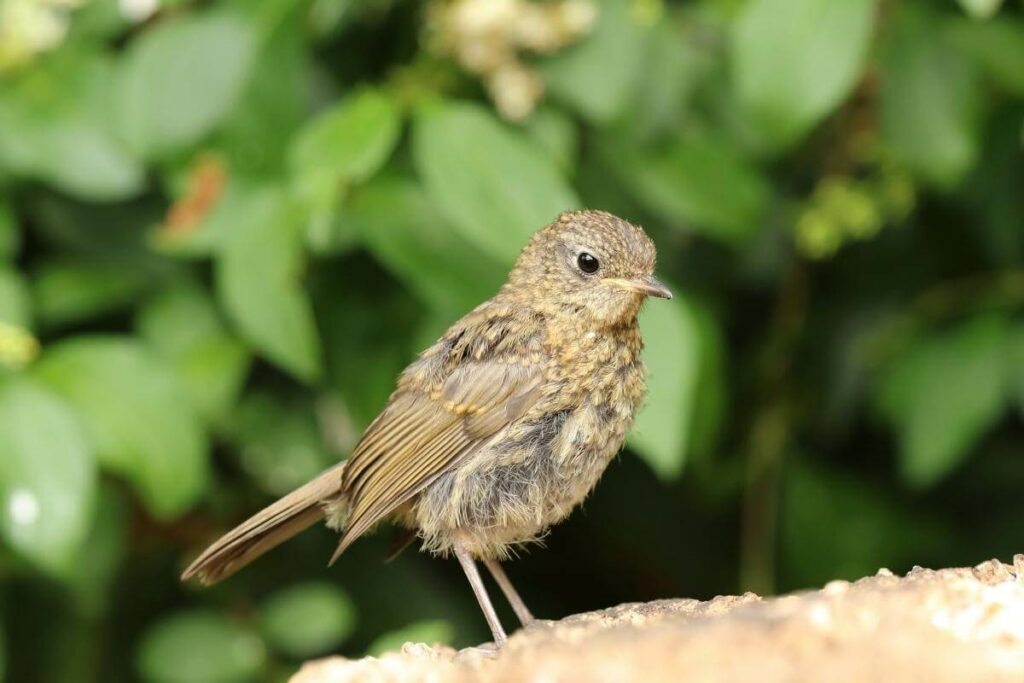
Robins start life off eating bugs and they continue to eat bugs life-long.
Of their diet, you could say this makes up the bulk.
Their favorite bugs are:
- Worms
- Mealworms
- Beetles
Although they are not limited to these.
Unusually for birds, robins do not usually enjoy corn, grain, or nuts, although some will eat the occasional crushed peanut.
Rather, they prefer bugs first, and second, fruit.
In The Wild: They are known to eat dogwood fruit, and they will often appreciate apple slices, strawberries, raisins, raspberries, or cherries at a feeder!
How Do Robins Feed Their Babies?
Robins are dedicated parents, as their newborns must be fed frequently – roughly every ½ hour.
This means that they are almost always on the hunt.
They feed their young almost solely insects, as these are soft and easy for them to digest.
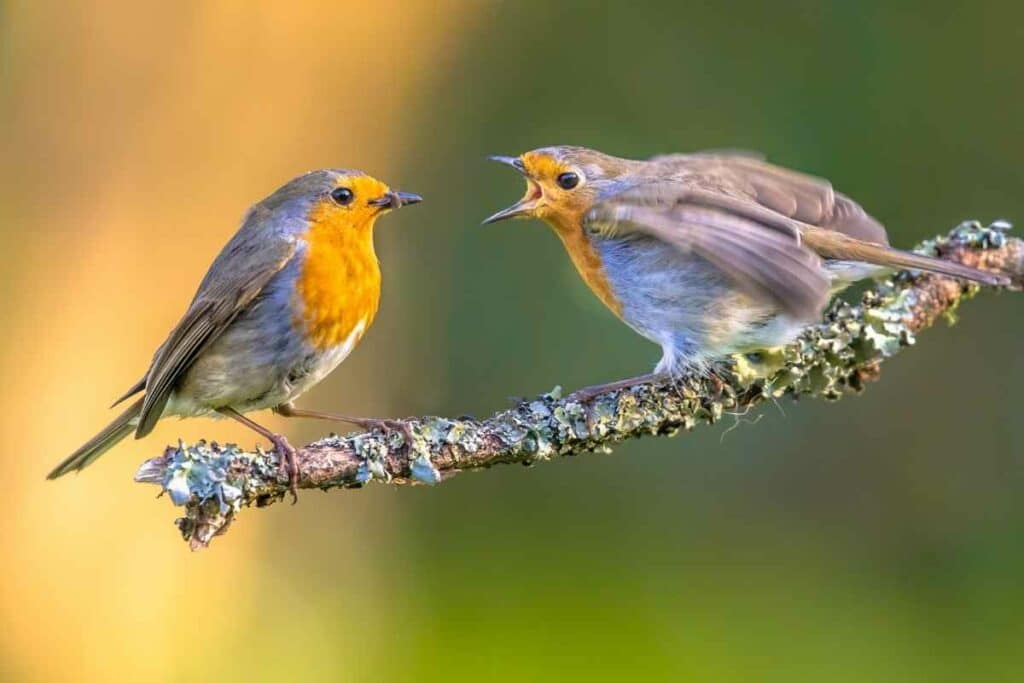
Insects also make up the bulk of any robin’s diet, no matter their age.
Their favorite:
- Worms
- Caterpillars
- And other invertebrates
Robin’s beaks are specially designed to snatch them from a leaf or pull them from the dirt, and they make a nutritious and protein-rich snack.
When Can Baby Robins Feed Themselves?
Baby robins are incapable of feeding themselves until they are ‘fledged’, at roughly 2-3 weeks of age.
Until this point, newborn robins are entirely reliant on their parents for sustenance and survival.
Take a look!
What Do Newborn Robins Eat?
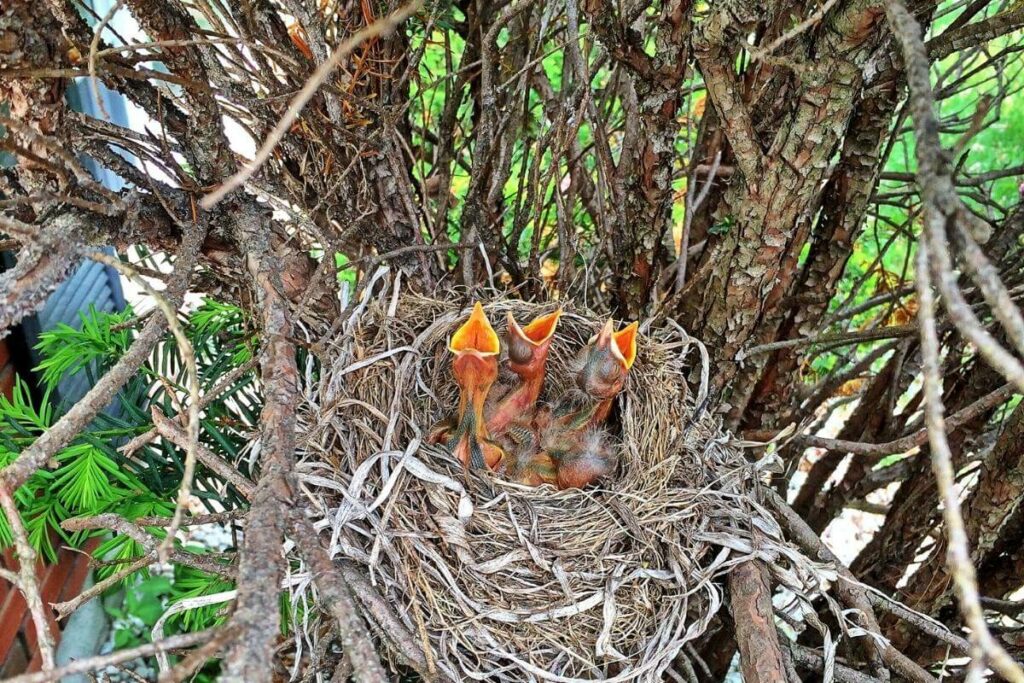
For the first few days of their lives, newborn robins can eat only food that’s been regurgitated by their parents.
They aren’t capable of digesting yet themselves for about a week.
At this time, their parents will begin to bring them broken-up but undigested insects.
Finally, they can eat fully intact insects when they’re about a week and a half.
They will still not be able to hunt for themselves for another week or so, however!
Can Fledglings Feed Themselves?
At 2-3 weeks in age, baby robins ‘fledge’.
This means that they will attempt to leave the nest by themselves. You can recognize a robin fledgling by its distinctly spotted, ruffled look.
They fly in brief spurts and are quick to hide from perceived danger! Once baby robins are fledglings, and more mobile, they will begin to hunt (with varying success).
This may still be supplemented by their parents until they are older.
Fortunately for these awkward fliers, worms and old fruit are not too hard to catch – at least, not with that super-sharp beak.
Not Yet: Fledgling robins will still return to the nest to sleep, as well as look to their parents for guidance and protection. They are not yet independent and must learn to be a skillful hunter and forager!
Adult Robins Hunt and Forage with Skill
At 4-6 weeks, fledgling robins officially reach adulthood.
This means that they will leave the nest and strike out on their own.
By this point, they are quite confident in their flying and hunting skills and have a good chance at survival.
Their coloring should look mostly adult, although some speckling may remain, and their bellies will become more vibrant as they get older!
Soon Enough: The young adults will be looking for mates and creating nests of their own, once there’s suitable spring weather!
Conclusion
If you’ve ever wondered ‘When can baby robins feed themselves?’, now you know!
Don’t worry, most fledgling robins can look out for themselves (although, feel free to step in if they’re facing a dog or another predator).
Finally, all robins enjoy a good bug for a snack!
May Also Like
- How Do You Get a Baby Bird to Open Its Mouth?
- Is Your Bird Bath Too Deep – Will Birds Drown?
- What Do Chaffinches Eat?
